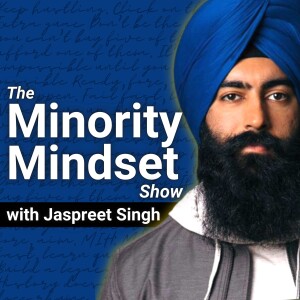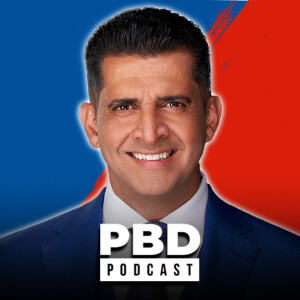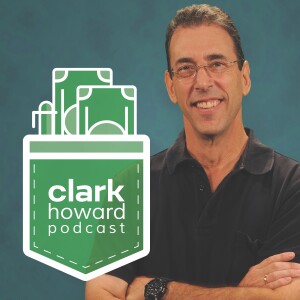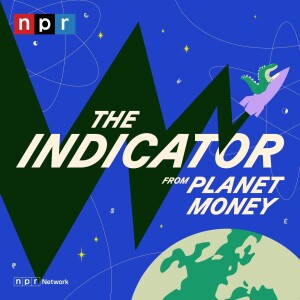

Edward Ingham: Sales Got Easier the Day I Stopped Pitching - finding fulfilment and results through client-centric selling
In this episode of The Inquisitor podcast, host Marcus Cauchi interviews Edward Ingham about his journey from traditional, product-focused sales to a more customer-centric approach. The conversation delves into the real-life moments that shaped Edward's shift and the practical impact it has had on his career and well-being.
Guest: Edward Ingham, Senior Sales professional (biopharm-bd.com)
About Edward: Edward is a dual national British-Spanish salesperson based in Madrid, with 10 years of experience selling into enterprise pharma and startups. He has observed recurring sales themes across different company sizes and has learned significant lessons from his experiences.
Key Discussion Points:
- The Epiphany Moment: Edward realised the need for change about five years into his sales career. This shift occurred when he stopped focusing on the technical aspects of the product and the prospect's role (like CBO or CEO) and instead looked inward, considering how his own actions were affecting the other person, viewing them as human beings. He began to think about how he would feel if someone was doing what he was doing to them. The second part of this transition was spending time to truly understand the prospect's world, recognising that they don't make impulse purchases and need to "sell" internally within their own organisation to get things done.
- Breaking Point: The old way of selling became unbearable, particularly during lockdown, when facing constant rejection alone in an apartment led to self-doubt. This coincided with him starting to listen to The Inquisitor podcast, which offered a new perspective on questioning people to understand their situation. The sense of rejection was the most difficult part of the old approach.
- Understanding Buyer Behaviour: Marcus highlights that buyers don't reject the salesperson, proposition, or product itself, but rather the uncertainty and lack of safety associated with the decision. Buyers want to make the right decision effectively and know that a purchase will deliver the intended outcome. Creating false urgency creates distrust.
- Learning and Improvement: Edward learned from ghosting experiences that prospects are not necessarily "mugging you off," but often have internal issues or priorities that take precedence. The key is to probe and ask tough questions (nicely) to understand the prospect's reality and qualify or disqualify opportunities early. This prevents "bulking up" pipelines with uncertainty, which can negatively impact forecasting up to the board and investors.
- Becoming an Ally: The moment of realisation that his job was to be the customer's ally, not their accomplice or adversary, came from slowly implementing client-centric approaches and seeing immediate positive results. Switching the tone in emails or meetings led to responses from non-responders, positive reactions, and feeling appreciated in the room.
- The Power of Client-Centricity: Edward found that adopting a client-centric approach, treating prospects as human beings with emotions, helps overcome imposter syndrome, especially for those without a deep scientific background in technical industries like pharma. This approach serves as a unique differentiator against salespeople who product push. Clients appreciate honesty, like direct answers to questions such as "Who is better, you or your competitor?".
- Improved Results: A major difference seen is that very little unqualified opportunity enters the pipeline. By asking questions and understanding the client's position and internal readiness, opportunities are typically only added at a later stage (like "submit proposal"). This results in a very high close rate for opportunities that do enter the CRM. This certainty is valuable for communicating upwards within the company.
- Prospecting for Life: Shifting the mentality from transacting or booking meetings to prospecting for a customer for life changes the entire conversation tone. The focus is on genuinely understanding the other human being and their pressures.
- Client Reaction and Referrals: When this shift occurs, people actually want to spend time with you and become just as invested in the conversation. The feeling of needing to chase disappears. Edward receives messages directly from prospects on their personal phones. He finds he needs to do less work on accounts because internal people know he isn't difficult to work with and will help them internally. People who were historically bombarded may reach out, demonstrating that less work structured differently leads to inbound interest.
- Activities Eliminated: Edward no longer wastes hours with "tire kickers" or spends time on "just checking in" follow-up emails. This time is reinvested in self-improvement or sales enablement. The customer-centric approach reduces waffle and uncertainty in pipeline discussions.
- Doing the Right Thing: A principled approach includes the absolute minimum gesture of honesty, such as advising a prospect that a competitor might offer a better, cheaper, or quicker solution if their request is out of scope. This is uncommon but helps differentiate a salesperson and build long-term memory with the prospect.
- Impact on Self: Being human-centric makes you a lot happier. You go home feeling like you've helped someone, which is often the antithesis of traditional sales. Done well, sales is about facilitating good decisions and empowering people.
- Engaging Broadly: Edward aims to engage with around 12 or more people within an account over the medium term, having interactions not solely focused on the sales process. It's important to get in touch with key people (like procurement or legal) before you need something from them.
- Working with Procurement: Edward learned that engaging with procurement with purely their interests at heart is pivotal. They are trying to save the company money and have specific KPIs; understanding these can help make their life easier and create internal advocates.
- The Power of Mentorship: A critical move was seeking mentorship from people he had previously interacted with, particularly those he might have "pissed off" as a salesperson, or people in roles like procurement. He crafted concise LinkedIn messages asking for 15 minutes a month of mentorship with "no strings attached" and a promise not to abuse the goodwill. The response rate has been incredibly high (above 90%). This provides invaluable insight into the customer's world, their internal pressures, and the emotional factors influencing decisions.
- No Need to Discount: Edward learned that discounting feels insincere and is effectively "lying to people". It should be avoided at all costs unless value has been clearly delivered and the prospect understands they need the product. Discounting hurts cash flow, forces more prospecting, and procurement remembers suppliers who are quick to discount.
- Owning Your Development: Edward advises people who are waiting for company training to stop pointing the finger. It is the individual salesperson's responsibility to train themselves. Finding role models (through podcasts, content, reaching out) and making yourself vulnerable by seeking feedback are key.
- How You Sell Matters More: Both Edward and Marcus agree that how you show up and how you sell matters more than what you sell. The intent behind the interaction will be remembered, not the technical details of the product.
- The Real Issue: The fundamental issue in sales is often time and relevance for the prospect at a given point in time, not the product itself.
- Becoming a Board Director: Edward's recent transition to a board director highlights the value of having frontline sales perspectives on boards, providing insights into market dynamics and customer reactions that senior execs might not have due to being removed from daily sales interactions.
- Final Challenge: Stop product pitching and focus on the prospect's world, their agendas, and their life. Treat them as human beings, understanding their needs and priorities, not just focusing on your own targets.
Recommendations for Further Learning:
- Books: Demand Side Sales by Bob Moesta, Trust-Based Selling by Charlie Green, The Other Side of Sales by Mark Schenkeus, How to Make Friends and Influence People.
- Podcasts/Content: We Have a Meeting (WAM guys), Benjamin Dennehy, Jerry Hill.
- Community: Veblen Community (Callum Lang).
- Networking: Seek mentors through respectful outreach. Consider Sellers Anonymous.
How to Connect:
- Edward Ingham: edward.ingham@biopharm-bd.com or reach out on LinkedIn.
- Marcus Cauchi: Get in touch regarding Sellers Anonymous or the Career Pathfinder.
The conversation highlights the transformative power of shifting to a truly human-centric and principled approach in sales, leading to increased effectiveness, personal fulfillment, and stronger customer relationships.
More Episodes
All Episodes>>Create Your Podcast In Minutes
- Full-featured podcast site
- Unlimited storage and bandwidth
- Comprehensive podcast stats
- Distribute to Apple Podcasts, Spotify, and more
- Make money with your podcast











